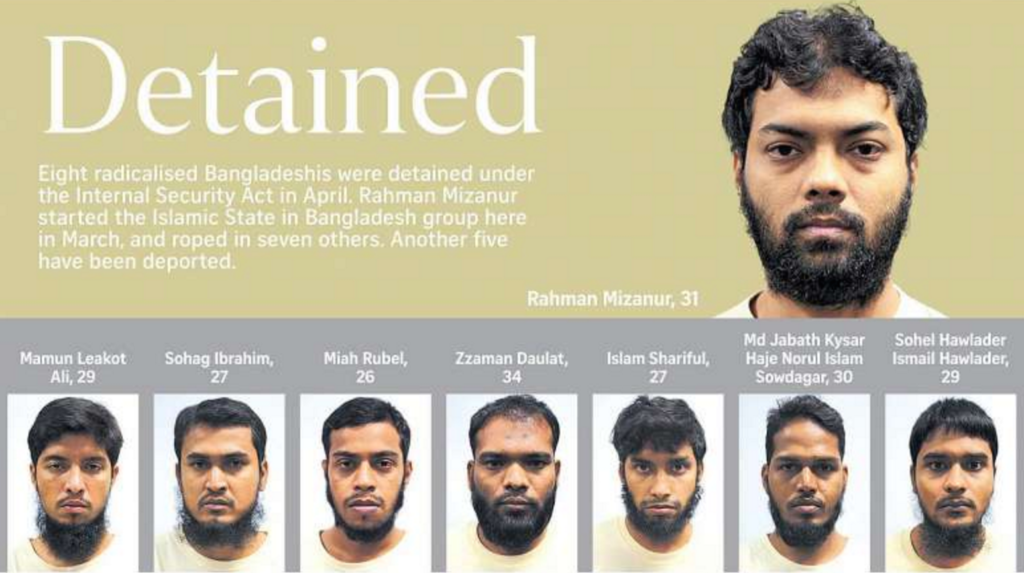
(Straits Times)
So it came as a bit of surprise when Singapore’s Ministry of Home Affairs announced last Tuesday that it had detained eight Bangladeshi workers in April for their alleged membership to the Islamic State in Bangladesh (ISB) and on suspicion of planning attacks. The eight men, aged between 26 and 34, were among the many Bangladeshis employed in the construction and marine industries. Five other Bangladeshi workers were also detained as they “possessed and/or proliferated jihadi-related materials or supported the use of armed violence in pursuit of a religious cause” though subsequently repatriated to Bangladesh after investigations showed they were not involved with ISB.
Although the ministry arrested the eight Bangladeshis under the city-state’s Internal Security Act—allowing for detention without trial in cases where public safety is threatened—the ministry says the attackers planned to strike in Bangladesh and “there are no specific indications that Singapore had as yet been selected as a target.” The ministry added the suspects made plans to “overthrow the democratically elected government through the use of force, establish an Islamic State in Bangladesh and bring it under ISIS’ self-declared caliphate.”
An investigation of the eight individuals uncovered documents targeting locations, government and military officials, and “media peoples and disbelievers” in Bangladesh. Evidence suggests the group had raised funds for firearms, possessed guides on making weapons and bombs, and had access to radical material from the Islamic State group and al-Qaeda which were to be used in recruiting other Bangladeshi nationals.
The Singapore government was quick to clarify that although the threat of terrorism is serious, citizens should not take issue with “foreign workers or Islam.” While the government has attempted to manage any backlash against Bangladeshis in this seemingly harmonious society, greater efforts to integrate foreign workers through outreach, higher pay and job training programs should be made.
Further, the Singapore Muslim community can do more to help stem the threat from a relatively minor segment of its population. In January, Singapore arrested and deported 26 Bangladeshi construction workers for forming a religious study group to spread the ideology of al-Qaeda and the Islamic State group. Most of them had worked in Singapore for between two and seven years.
Finally, efforts to minimize the threat to Singapore are not helpful, as the leader of the terrorist group, Rahman Mizanur, had indicated he “would carry out an attack anywhere if he was instructed by ISIS.” Of course, while we cannot allow terrorists to scare us away from international travel (the exact outcome they seek), it seems nowadays the threat of terrorism can come from anywhere.